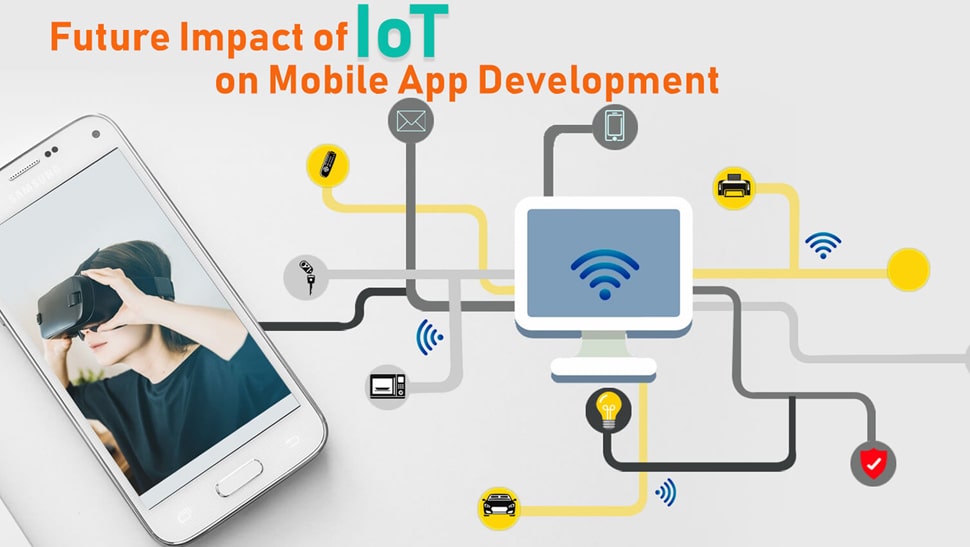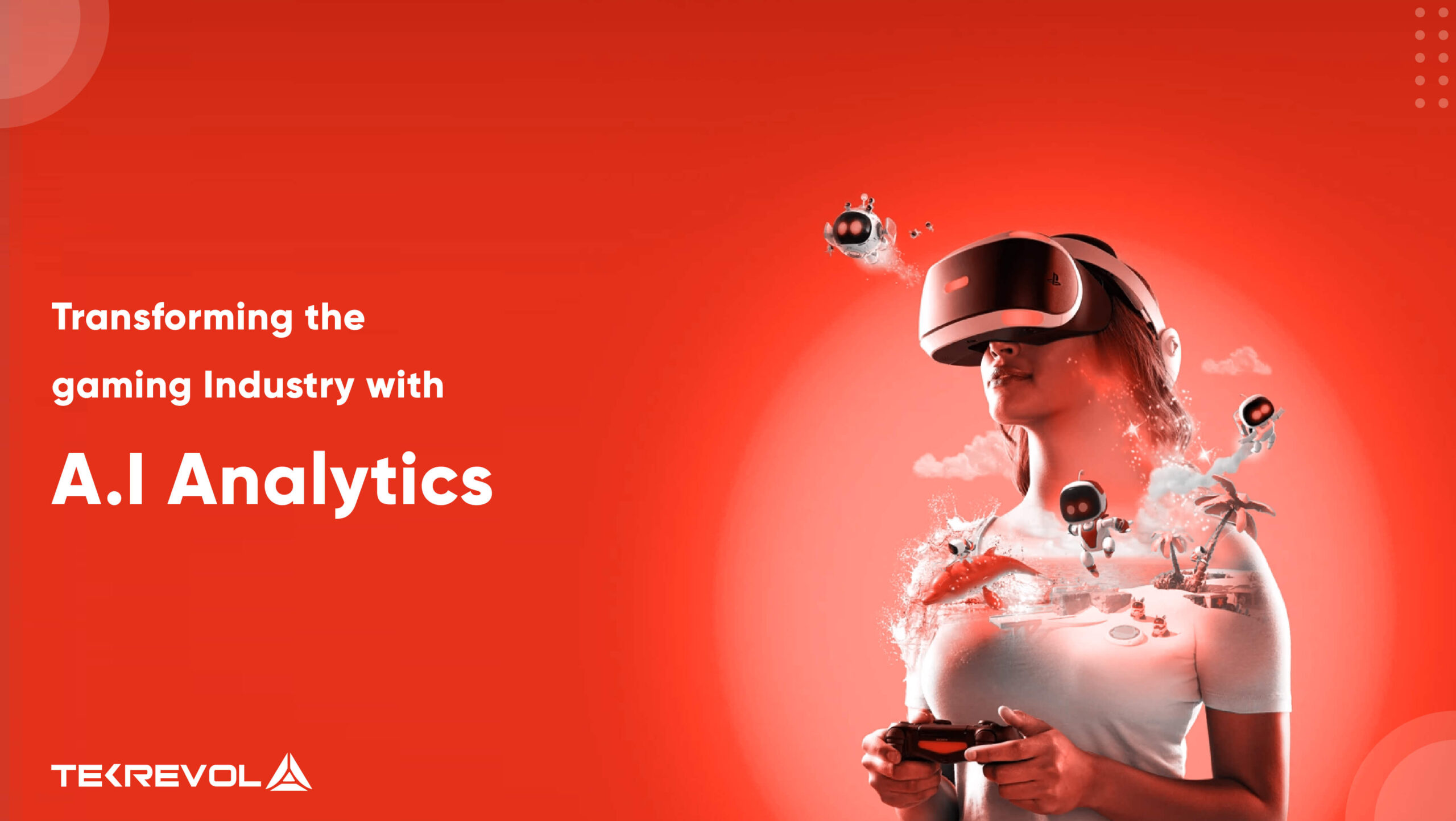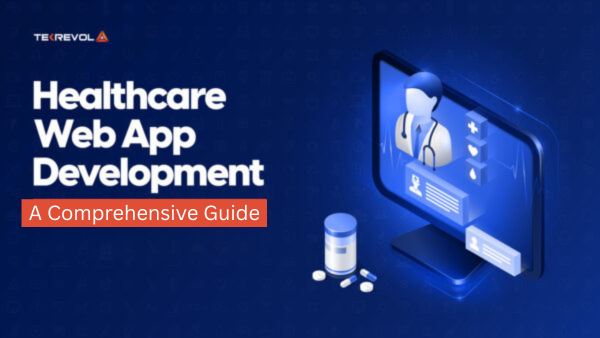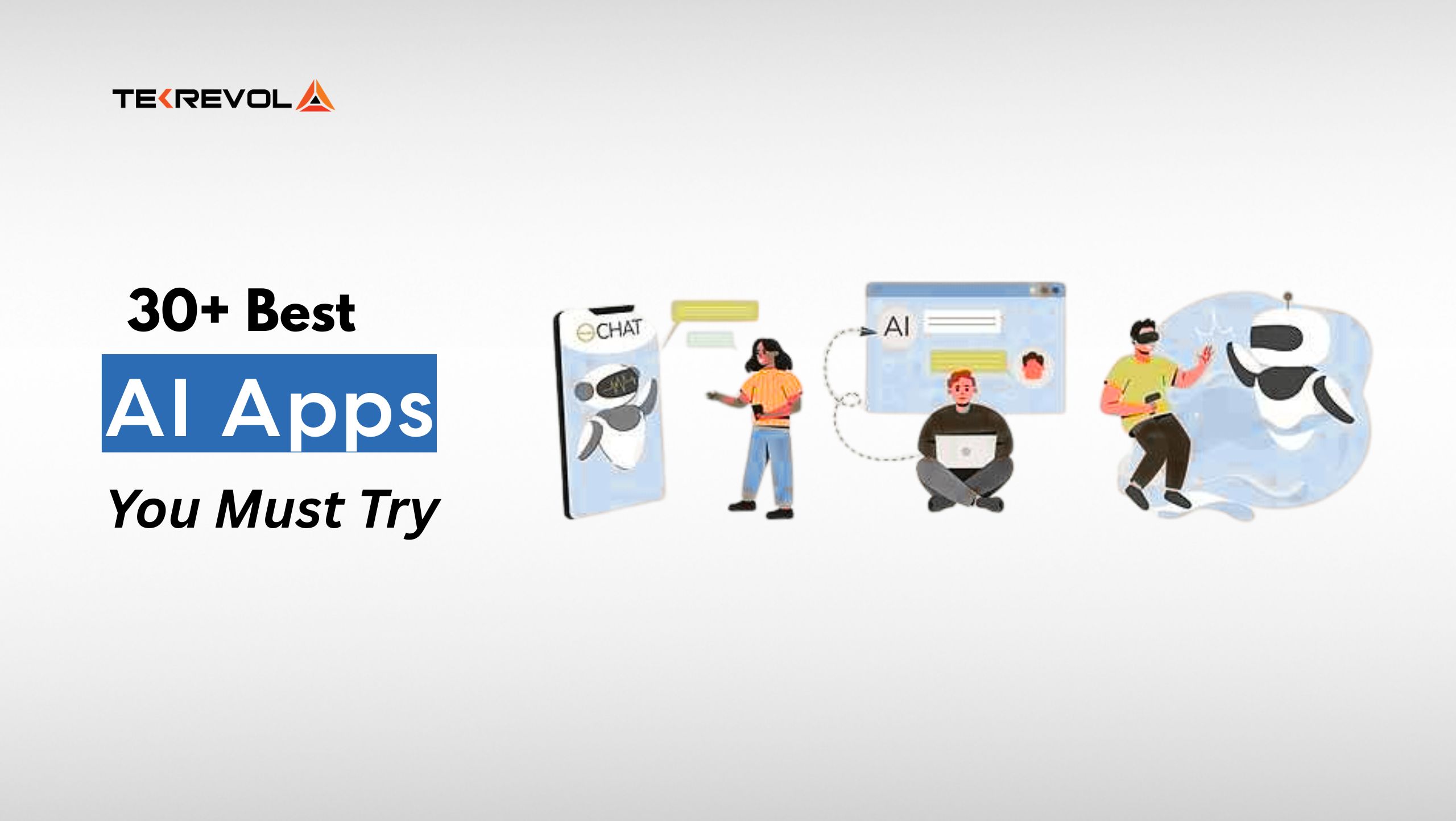A report by Fortune Business Insights talks about the global internet of things (IoT) market valued at US$ 190.0 billion in the year 2018. However, this number is predicted to reach US$ 1,102.6 billion by 2026, with a 24.7 percent compound annual growth rate (CAGR).
There is no doubt, IoT has a significant role in this technological era. That said, when powered by the competences of mobility, the technology has the potential to take innovation, business performance, and user-experience to a whole new level.
Advancement in IoT technology has been very impactful in the mobile app development industry. According to research by Smart Insights, around 90 percent time spent on mobile devices is utilized on mobile apps. The use of mobile apps has grown to become more popular, powerful, and futuristic over the last few years.
The influence and impact of IoT in mobile app development company can easily be seen all around us. Some examples include sensor-enabled buildings, pavements and bridges; smart vehicles, appliances and devices; and wearable devices, like Google Glass and Apple Watch. App development has been acting as the bridge for forward-looking technologically innovative enterprises coming up with smarter devices that enhance lifestyle.

Impact of IoT on Mobile App development
The changing patterns and current demand of end-users have driven app developers to embrace IoT technology. App development teams are collaborating with IoT developers to smartly use the technology in their applications, to deliver unmatched user experience and get ahead of their competition.
Recently, IoT developers have been pushing a new scale of innovation, which enables any mobile device or gadget accompanied by a user to go to any location powered by electricity. This is the emerging force in the IoT market that is impacting the way people live and work.

Source: https://www.ericsson.com/
One of the better and impactful examples of IoT and mobile app development coming together would be Wi-Fi enabled thermostat for homes and offices. The app functions as the remote or gateway with controls, and the thermostat are IoT endpoints. The advancement of app development with the influence of IoT is not just a hunch or vague statement. According to research by MEDICI INSIGHTS, the number of mobile devices integrated with IoT is expected to cross 1.5 billion by 2021. It represents an incredible growth from only 400 million devices in 2015.
Let’s explore more ways that IoT impact mobile app development.

Efficient utilization of time and efforts
The influence of IoT allows multiple devices, apps, and functions to work as a system that manages all. For example, mobile devices integrated with IoT function enable users to switch on the light, track the cab they ordered, check security cameras, etc.
The advancement has ultimately made things easier for both the developers and end-users. Users can control all IoT devices from a single device, and this means a reduced amount of effort is required from developers when building apps. The time it took to build one app in earlier times can now be utilized to make multiple apps with no hassle.

The shift in approach
In reference to a recent International Data Corporation (IDC) report with 5,421 survey respondents from 29 different countries indicates that 85 percent of respondents say that they have dedicated budgets for IoT projects.
Previously the approach of a majority of app developers was to focus on user-friendliness. However, with the current trends, the app developers are more focused on building IoT integrated apps that offer a unique experience and stand out.
To increase your competitiveness in the market, it has become imperative to provide users with advanced technology that helps meet their changing expectations. The market demand and end-users should be considered a priority when building an app, along with IoT integration, to deliver ease of lifestyle to users.

Centralized app system
The introduction of IoT integrated devices in the market has led to many opportunities and possibilities. The focus has been to provide one centralized system for end-users that controls multiple devices. It also means higher cost-effectiveness and better management for end-users as well as app developers.
An example of the centralized approach would be Beacon technology, which can be embedded with IoT to personalize it to a specific location. When a device with a specific app set up enters the pre-defined area, the beacon sends a signal. This signal emits instructions in the form of an app notification or alert and enables the power of centralized appliances to be controlled from a single device within the specified region.
In addition, the Marketing Leader at PricewaterhouseCoopers (PwC), Matthew Lieberman shared in an article he wrote for Forbes, that their data indicates 81 percent of surveyed internet users from the United States are familiar with smart devices and connected homes. Moreover, taking things a little extreme, 30 percent of them said they could not live without smart devices. This shows the increasingly positive perspective of IoT integrated devices among the masses and their reliance on them.

Open source Development
As the Internet of Things technology spreads its influence in the world of mobile app development, programmers should definitely be expecting more mobile apps coming their way. IoT allows developers to use the available opportunity and be more experimental when new app concepts and types to better meet business and user needs. Tech giants like Google and Microsoft are working on further advancement of technology and a range of new attributes. They aim to help newcomers in the industry to get a jump start with an app that incorporates IoT and other next-generation technologies.
With advance open source development platforms, there are new opportunities for developers to build more and more small mobile products that can significantly bridge the gap between IoT and non-IoT devices.

Top-notch security
There are too many points of entries when using IoT that can be a possible threat to the security of the app. This makes it easier for cybercriminals to misuse the data available on the app for unethical reasons. Hence, with the increasing impact of IoT on the mobile app development industry, developers need to be more mindful to enhance their knowledge of cybersecurity and eliminate any chances of cybercrime in their app.
It is imperative to aim for building IoT powered mobile app that not only offers an excellent user experience but is also safe and secure for people to use. However, despite some security concerns, enterprises still uphold a forward-looking approach in exploring IoT within their field.
With reference to a report by Markets and Markets, the global IoT security market size is projected to grow from US$ 8.2 billion in 2018 to US$ 35.2 billion by 2023, with 33.7 percent CAGR. Some of the most dominating driving forces for this market growth are the rising number of ransomware attacks on IoT integrated devices around the world, increasing IoT security regulations, and the growing security concerns with complicated infrastructures. Looking at some of the significant aspects of how IoT impacts mobile app development, technology has undoubtedly paved the way with a promise to expand and grow in the coming time. This is the reason why more and more businesses globally are exploring advanced technologies like IoT, AI, and Blockchain to better facilitate their users and deliver an unprecedented experience that makes them and their product carve the industry benchmark.
That said, businesses are adopting the practice to use an extra layer of security when running their IoT powered devices. However, as no mobile app development company wants to deal with the consequences of cyberattacks, they have always considered security a critical factor in the development of apps.
Locations We Serve
Mobile App Development San Francisco
Mobile App Development Houston
Mobile App Development Chicago

 3299 Views
3299 Views July 15, 2024
July 15, 2024









